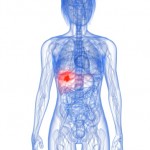A Glimpse into the Mind of the Stomach
Has your stomach ever started growling loudly in a meeting? Have you ever skipped breakfast, only to have your stomach rumbling, and then opt for the pizza instead of salad? It turns out that the stomach is to blame.
Much as we’d like to deny it, the stomach really does have a mind of its own! Scientists refer to the stomach’s mind as the “enteric nervous system”, or more affectionately as the second brain.
Your digestive system contains over 500-million nerve cells that trigger digestion and release chemicals signalling hunger or the sensation of fullness.
“Feed Me” Signals When your stomach is empty, the nerve cells in the lining of your stomach release chemicals to let you know that it’s time to eat.
These chemicals can then travel to your brain and initiate “food-gathering” behaviours.
One of these chemicals, ghrelin, has received a significant amount of interest from scientists trying to understand obesity.
Under normal circumstances, ghrelin is released by the stomach and tells the brain to increase food intake and energy storage.
Although this seems like a great way for your stomach to protect you from starving, in these times of over-indulgence and readily available food sources, it could spell trouble.
Individuals injected with ghrelin before hitting a buffet ate 30% more food than individuals who did not receive the injection.
Not only does ghrelin tell your brain that you need food, it also tells your brain that it would prefer a high-calorie food (e.g., that piece of chocolate cheesecake or a bag of potato chips).
The link between ghrelin and chocolate cheesecake is even more interesting given that ghrelin levels may be involved in regulating mood and depression.
After a stressful situation, ghrelin levels increase in the blood.
In contrast, lower levels of ghrelin in the blood are linked to antidepressant-like effects.
This link could help explain why we opt for eating when the going gets tough – it lowers our ghrelin levels and makes us feel better.
“Stop Eating” Signals Your enteric nervous system also has mechanisms in place for telling your brain to stop eating.
As your stomach fills with food, it begins to stretch. The stretching activates special nerve cells to signal a feeling of fullness.
This is partially why gastric stapling can be an effective treatment for obesity.
Because the stomach is smaller, eating a meal becomes like trying to cram a regular-sized pillow into a smaller pillowcase.
Unfortunately, repeated over-stuffing can also cause the stomach to expand, reversing the effects of surgery.
The stomach’s “stop eating” signals, however, are not nearly as strong as those released by your small intestine.
When food hits your small intestine (especially if they’re protein- or fat-rich), special nerve cells release a chemical called cholecystokinin (CCK).
CCK travels to your brain and lets it know that you’ve eaten enough food.
It also tells your intestine to release digestive enzymes that help your body process the fat, carbohydrates and protein you’ve just ingested.
Controlling your “Feed Me” and “Stop Eating” Signals A few simple dietary and lifestyle changes can help you control your ghrelin and CCK levels.
By minimizing increases in ghrelin and promoting the release of CCK, you’ll be able to fool your stomach’s brain into thinking you’re fuller for longer.
* Get enough sleep: People who are sleep-deprived have higher levels of ghrelin.
* Exercise: One hour of exercise helps lower ghrelin levels and suppresses appetite.
* Eat breakfast: Eating breakfast will help prevent high-calorie cravings.
Eat a diet rich in good carbohydrates and protein: good carbohydrates (e.g., whole grains) and protein are more effective in lowering ghrelin levels than fats.
Protein is also an effective way of increasing CCK levels (that signal fullness).
Include some protein in your snacks: the protein will stimulate the release of CCK and make you feel fuller.
For example, have a small piece of cheese with your apple, or hummus with your celery sticks.
Spread snacks and meals out evenly throughout the day: this will help prevent spikes in ghrelin levels, and help prevent those dreaded cravings.
Making some or all of these changes will help keep your ghrelin levels in check.
It will also help with your weight loss goals because instead of fighting two brains, your stomach’s brain will be tricked into telling your real brain to stop eating!
Source: http://www.fitnessrepublic.com/nutrition/general-nutrition/glimpse-mind-...
-
The Best Way Overweight Men Can Finally Shed Some Pounds and Stay Healthy and Trim
Overweight men store a significant portion of their fat in their
-
Fitness Strength Training: 3 Reasons Why the Skinny Man stays Skinny (and How to Resolve It!)
It is an important part of the male ego
-
Kettlebells for Fat Loss
Kettlebells is one of the most effective training tools that I have
-
Losing Weight: The Power Of Food Journaling
So many of us say we want to lose weight or eat healthier, but frequen
-
Dietary Fats And Obesity
Although much attention has been focused on the need to reduce dietary
-
The very best Way of thinking To possess Regarding Laser Liposuction
If you are looking at numerous medical possibilities to guidance milde
- DON'T MISS
- What is a healthy diet?
- How to Break Through a Weight Loss Plateau
- Diets To Burn The Fat
- Best Cardio Exercises for Burning Stomach Fat
- 5 Tips On How To Lose Weight - The Right Way (You Can Do This)
- Gallstones (cholelithiasis) risk increases with high BMI, rapid weight loss
- 7 Magical Steps to Kick the Binge Eating habit out of Your Head.
- Lose Gobs of Fat With These Minor Dietary Tweaks
- The Top 10 Tips To Weight Loss Health And FitnessTip 8
- Artificial Sweeteners: Good Or Bad For Your Weight?




